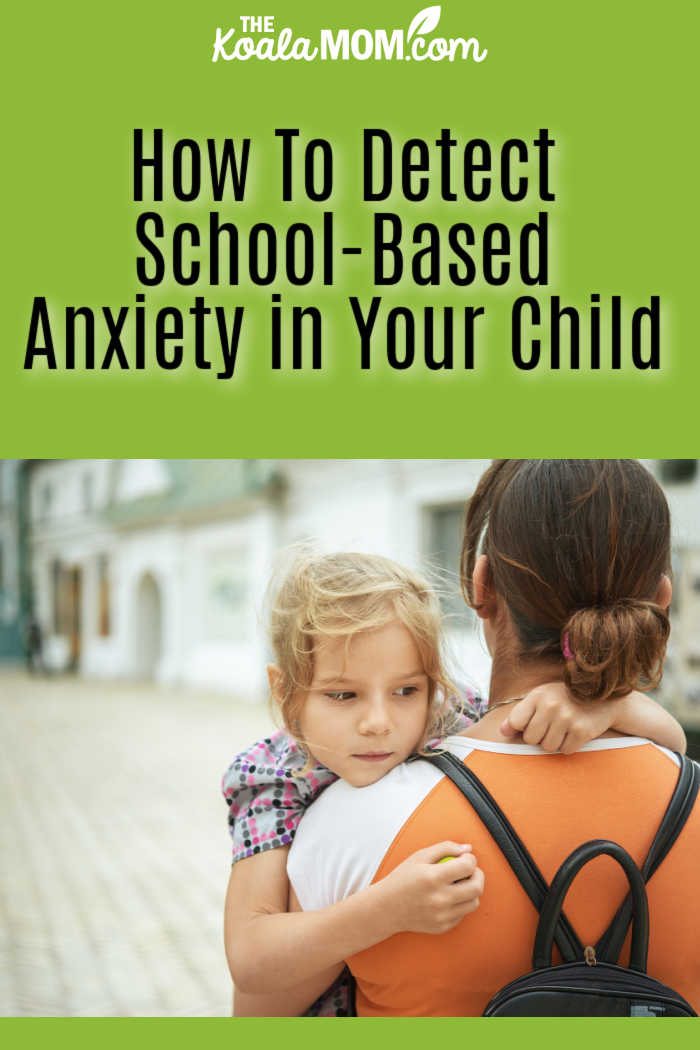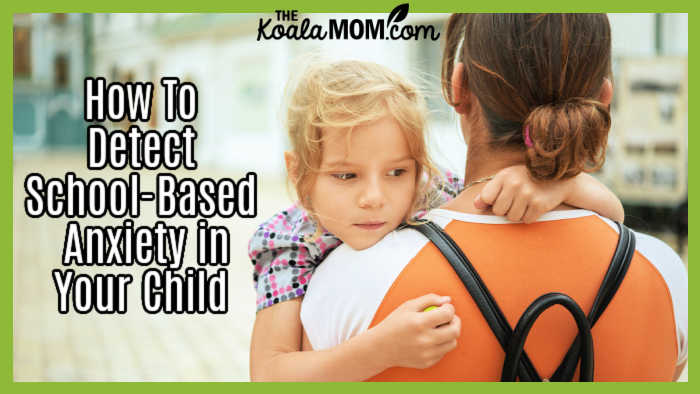Today’s children have gone through quite a lot in their young lives. If you have school-aged children, you understand how easily they can become anxious, overwhelmed, stressed or unsure about school and what occurs there. It’s important to understand what signs and actions may suggest they are dealing with school-based anxiety.

This post contains affiliate links; as an associate, I earn from qualifying puchases.
Changes in Behaviors
Your children’s anxiety will be evident in their behaviors. First, they may fight against you about going to school. They may even refuse to get up and get ready. They may make statements similar to “I can’t go to school.” They could feign sickness, such as stomach pain or headaches.
You may find your children acting out in school as well as at home. They may become angered easily. They may also seem weepier than normal. You may find them withdrawn, sad, quiet and even depressed. A child who previously played happily with his siblings may now spend more time in his room alone.
Your children may seem worried, but their worries may seem to be about small or insignificant things. They may worry about their homework, lessons or supplies. They could also stop doing their schoolwork or homework altogether.
A key factor to consider is whether these are new behaviors or changes in behavior for your child, or just behavior that you hadn’t noticed before. Sudden changes in behavior can indicate mental health problems such as anxiety or depression while patterns of behavior are more likely to indicate ADHD or other causes.
Addressing the root cause of these behaviors can help you determine how to treat them. For example, there is over the counter ADHD medication for children or other strategies to help them manage. It’s a good idea to consult with your child’s healthcare provider about the best way to help your child.
Academic Struggles
Children who struggle with their coursework can also become anxious, and their existing anxiety can adversely affect their coursework. If you see their grades dropping or they stop doing their schoolwork or homework, they could either have anxiety or lack understanding of the coursework. Often, they will have difficulty answering any questions their teachers ask them in class. Their anxiety can impact one or more courses or subjects.
When their grades fall, children may become clingy and want to stay home from school more often. They may also become inattentive in the classroom. Their teachers may complain about restlessness or that they disrupt the class often. Your children may also spend much of their school time daydreaming instead of listening to their teachers. They can also have a tendency to avoid working in groups or socializing at all, which can further impact their grades.
Causes of School-Based Anxiety
Your children may experience challenges at school, such as bullying or difficulty understanding the lessons. They could adopt selective mutism when they get asked to speak in front of the class. Some of their anxiety may be a result of their actual school experiences.
However, some of their school-based anxiety may have other causes. For example, children may feel concerned about their separation from you, known as separation anxiety. They could feel nervous and self-conscious in social settings, resulting in social anxiety. Generalized anxiety causes children to worry about everyday events, tasks and items. They may feel like they have to be perfect in school.
Your children could suffer from obsessive-compulsive disorder, which results from consistent stressful, fearful and unwanted thoughts that they can’t seem to get rid of. They may also have phobias like animals, failure, storms, heights, etc. Your children could have disruptions in their brains that cause anxiety as well.

Addressing Your Child’s Anxiety
As you research natural tools to help your children, work with a physician who can help you diagnose the causes of their school-based anxiety. Your physician can help you determine whether medication, therapy, or other strategies are best for your child.
Certain foods can help to fight depression and anxiety in kids. Here’s a great list you’ll want to keep handy.
It can also be helpful to sit down with your child and talk gently to them about what you’ve noticed and ask for their input on what would help. Knowing that you are listening and want to help can make a big difference for your child. Asking for their input can also help them feel empowered to make positive changes in their own lives, knowing that you are supporting them. Perhaps tutoring, a change of schedule, or another simple solution exists that will help reduce your child’s anxiety.

No Responses Yet